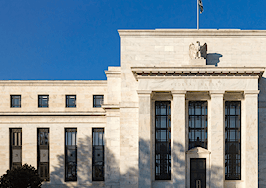The rules of pricing properties are changing, yet most agents continue to use the same pricing approaches that the industry did 50 years ago. Are you making this costly mistake on your listings?
A constant topic of conversation on my company’s group coaching calls is how to price properties correctly. About two years ago, I spent some time working with an agent who had landed a prime listing in one of the nation’s hottest downtown historical areas.
The listing was priced at $849,900, was beautifully staged and had only been on the market for seven days, which is the average market time for this area.
The other experienced agents had convinced the listing agent that she should ask the sellers for a price reduction because the property next door had just come on the market for $799,000.
The agent was also concerned that the area might be peaking and that additional interest rate increases could result in declining values.
After reviewing the comparable sales as well as the new predictive analytics tools for pricing listings, I recommended that she increase the list price rather than lower it. Here’s why.
A justified price bump
The row houses in this area are predominantly two bedrooms, with one full bath upstairs and a half-bath downstairs.
This was the case for the $799,000 listing next door to the subject property.
In contrast, this agent’s listing was a three-bedroom, two-and-a-half bath with parking, a rarity in this area where most residents fight for a space on the street. Clearly, the $50,000 price differential was more than justified.
When I checked the price on Weiss Analytics (an artificial intelligence solution that uses hundreds of factors to price properties, not just MLS and public records) plus the Zillow comps, they were all greater than the current list price. Furthermore, Redfin’s algorithm put the probability of the property selling in the next four days at 70 percent at the current price.
The Weiss Analytics tool also predicted that this property would increase by 3 percent this year. Furthermore, because of the re-gentrification going on in this area, the property was predicted to outperform the overall market area by 5 to 8 percent over the next five years.
While all the facts above do matter, there was one even more important reason for increasing the price. It’s a major pricing error that thousands of agents make daily.
A small but costly mistake
To understand the exact nature of this mistake, I searched Austin homes for sale on realtor.com with no price parameters. The following prices came up for the top ten new listings:
- $400,000
- $524,999
- $1,095,000
- $1,775,000
- $499,999
- $329,900
- $574,900
- $252,000
- $279,900
- $274,900
Can you spot the $1 and the $100 pricing mistakes?
Of all the listings, only the property priced at $400,000 was priced to accommodate how people searched in 2017 rather than relying on the 50-year old approach of pricing the property $1 to $100 under the next price point.
(The $1 mistakes include $524,999 and $499,999, and the $100 mistakes are $329,900, $574,900, $279,900 and $274,900.)
A new pricing strategy
The agent I spoke with had made a $100 pricing error by pricing her listing at $849,900.
The reason becomes obvious if you go to realtor.com on your mobile device and look at the pricing parameters it gives you for a search. Here’s what I pulled up:
- $120,000
- $250,000
- $350,000
- $450,000
- $600,000
- $700,000
- $800,000
Zillow, in contrast, uses a slider, but the numbers that come up are still multiples of $10,000.
Granted, some MLS systems allow you to search by specific prices, but a huge proportion of the traffic is searching on realtor.com and Zillow.
Given how many searches take place on mobile devices, if you price your property at $499,999, that one dollar difference can cost you 50 percent of your potential buyers. The reason is that those people who are searching for homes priced at $500,000 to $550,000 will never see your listing that is priced at $499,999.
After examining all the data on this property, $860,000 seemed to be the best value estimate. The question is, however, do you price at $860,000 or do your drop it to $850,000 to capture those buyers who are looking in the $800,000 to $850,000 range?
It was my recommendation that she go back to her clients armed with all the data and an explanation why increasing their price by $100 was a smart move in terms of mobile search.
To help her sellers understand why she was making this move (plus any agents who might criticize her odd price increase), I suggested that she share the predictive analytics data showing the potential for greater appreciation in this neighborhood as compared to several of the other market areas nearby.
To provide your buyers with the maximum amount of exposure, price your listings where they are straddling price points in multiples of $10,000 rather than using the antiquated approach of choosing list prices that end with $900, $95,000, $99,000 or the worst error of all, the one-dollar mistake of $99,999.
Bernice Ross, CEO of RealEstateCoach.com, is a national speaker, author and trainer with over 1,000 published articles and two best-selling real estate books. Learn about her training programs at www.RealEstateCoach.com/







